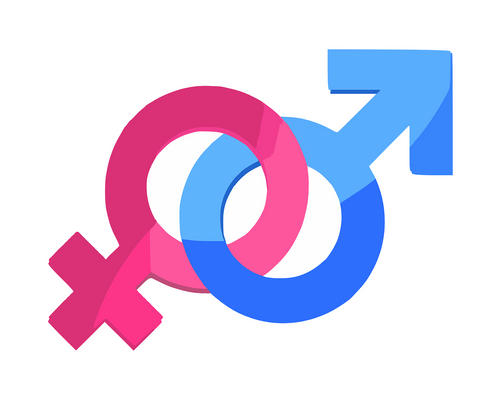7.3.2
Gender & Religion
Gender and Religion
Gender and Religion
Although there is evidence to suggest that women are exploited within religion, statistics suggest that women are more likely to be religious than men. There are three main explanations covered in these sections.


- Wanting to be seen as a ‘good mother’
- Wanting to be seen as a ‘good mother’
- Greely believes that young women are not necessarily interested in participating in religion until they have a child.
- This then changes their outlook.


Greely
Greely
- To be seen as a ‘good mother’ they need to raise their children with a strong sense of morality and ethics which can be helped by taking their child to church every Sunday.
- This shows the wider community that the woman is successfully performing her expressive role.
Gender and Religion
Gender and Religion
Although there is evidence to suggest that women are exploited within religion, statistics suggest that women are more likely to be religious than men. There are three main explanations:


- As a response to deprivation
- As a response to deprivation
- Glock and Stark studied the rise in participation of women in new religious movements which is due to the three types of deprivation suffered by women in society:
- Social deprivation- lack of status in society.


Deprivation cont.
Deprivation cont.
- Glock and Stark:
- Ethical deprivation-
- The sense that there has been a moral decline in society leading to desire for a strong set of core values that they can relate to.
- Organismic deprivation-
- Women are more concerned about their health than men and therefore may seek the comfort that religion provides.
- Ethical deprivation-


Criticisms
Criticisms
- Woodhead criticises the above ideas, suggesting they are outdated as women do not all fit into those roles in contemporary society.
- Due to the progression of women in society, the way they engage in religion has changed.
- As a consequence there are now three types of women with regards to religious participation:


Woodhead
Woodhead
- Home centred:
- Women who stay at home rather than work and are most likely to engage with traditional religions.
- Work centred:
- The women who work full time in demanding jobs and are secular as they don’t have time for religion.
- Jugglers:
- The women who balance work with family life who still seek some form of spiritual experience, turning to New Age movements.
1Theory & Methods
1.1Sociological Theories
1.2Sociological Methods
2Education with Methods in Context
2.1Role & Function of the Education System
2.2Educational Achievement
2.3Relationships & Processes Within Schools
3Option 1: Culture & Identity
3.1Conceptions of Culture
3.2Identity & Socialisation
3.3Social Identity
3.4Production, Consumption & Globalisation
4Option 1: Families & Households
4.1Families & Households
4.2Changing Patterns
4.3The Symmetrical Family
4.4Children & Childhood
5Option 1: Health
5.1Social Constructions
5.2Social Distribution of Healthcare
5.3Provision & Access to Healthcare
5.4Mental Health
6Option 1: Work, Poverty & Welfare
6.1Poverty & Wealth
7Option 2: Beliefs in Society
7.1Ideology, Science & Religion
7.2Religious Movements
7.3Society & Religion
8Option 2: Global Development
8.1Development, Underdevelopment & Global Inequality
8.2Globalisation & Global Organisations
8.3Aid, Trade, Industrialisation, Urbanisation
9Option 2: The Media
9.1Contemporary Media
9.2Media Representations
10Crime & Deviance
10.1Crime & Society
10.2Social Distribution of Crime
Jump to other topics
1Theory & Methods
1.1Sociological Theories
1.2Sociological Methods
2Education with Methods in Context
2.1Role & Function of the Education System
2.2Educational Achievement
2.3Relationships & Processes Within Schools
3Option 1: Culture & Identity
3.1Conceptions of Culture
3.2Identity & Socialisation
3.3Social Identity
3.4Production, Consumption & Globalisation
4Option 1: Families & Households
4.1Families & Households
4.2Changing Patterns
4.3The Symmetrical Family
4.4Children & Childhood
5Option 1: Health
5.1Social Constructions
5.2Social Distribution of Healthcare
5.3Provision & Access to Healthcare
5.4Mental Health
6Option 1: Work, Poverty & Welfare
6.1Poverty & Wealth
7Option 2: Beliefs in Society
7.1Ideology, Science & Religion
7.2Religious Movements
7.3Society & Religion
8Option 2: Global Development
8.1Development, Underdevelopment & Global Inequality
8.2Globalisation & Global Organisations
8.3Aid, Trade, Industrialisation, Urbanisation
9Option 2: The Media
9.1Contemporary Media
9.2Media Representations
10Crime & Deviance
10.1Crime & Society
10.2Social Distribution of Crime
Unlock your full potential with Seneca Premium
Unlimited access to 10,000+ open-ended exam questions
Mini-mock exams based on your study history
Unlock 800+ premium courses & e-books

